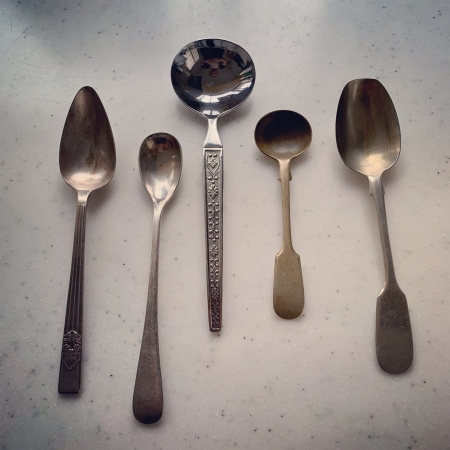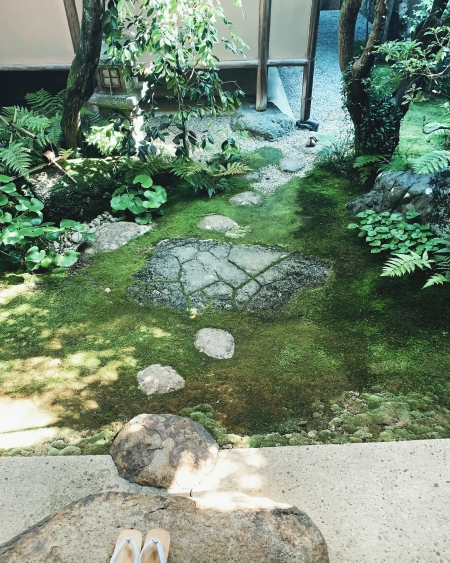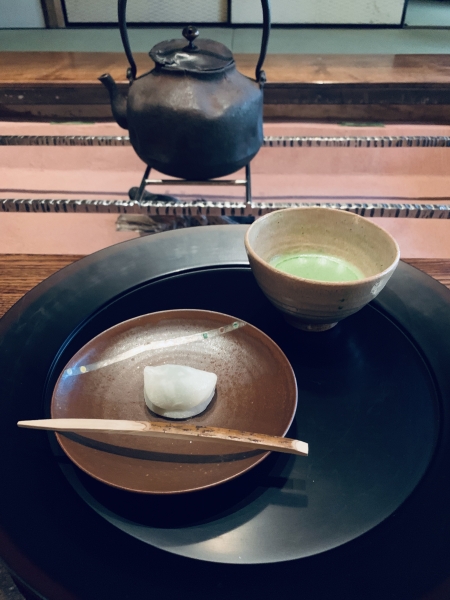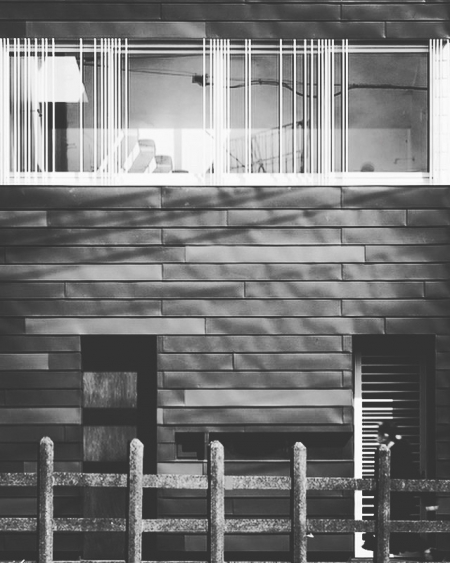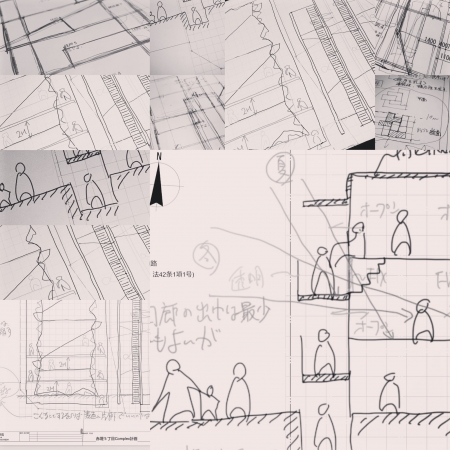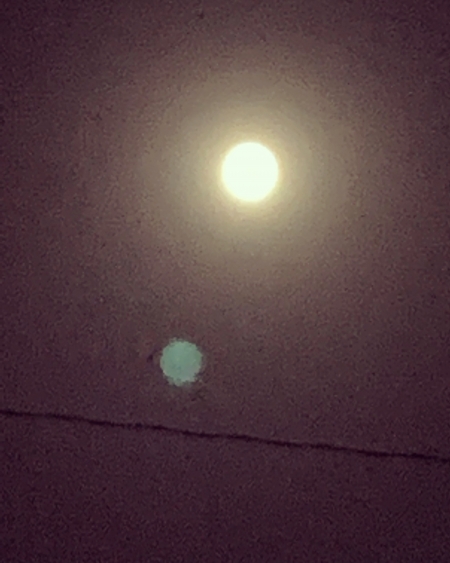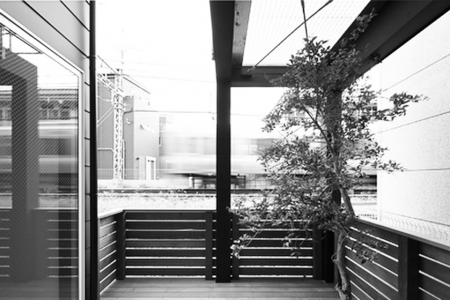選択肢という余白
つい選択できることに価値があると考えてしまう、その方が楽しいし。
ここ2,3ヶ月のうちに2回行った飲食店への道の途中にアンティークショップがあり、覗くとつい銀のスプーンに目が行ってしまう。カトラリーが大好きで、スプーン、ホーク、ナイフなど、いいなと思うものを見つけると、つい購入し、バターナイフも、セットではなくてバラバラでも、引き出しをあけると、カトラリー専用、見てるだけでも楽しい気分になるけれど、何か食事をする度に、どれにしようかな、と選ぶ楽しさ、コーヒーカップも毎朝選ぶ楽しさがある。
別に大したスプーンではないけれど、自分が気に入って、そこには自分の審美眼も入ってくるし、それを毎日、その時の気分でも、その時の器に合うものは、その時の料理に合うものは、と選ぶことが生活する上でとても大事、今生きていることを大事にしているような気がして、毎日変化するし、毎日自分は変化していくし、それが成長かもしれないし、老いかもしれないけれど、そこに沿うためには選択肢がある状態の方が良いだろうと。
選択肢がたくさんある、たくさん用意されている状態は、結局何ひとつ決まっておらず、全てが流動的で、どうにでもなる状態であり、ひとつのことに決めれば、他の選択肢は必要無くなるので、無駄やその無駄を容認できる余地、余白を抱えている状態とも言える。
だから、余白に価値があり、余白に可能性を感じ、余白をどうやったらつくり出すことができるだろうか、と自然に考えてしまう。
それは建築に対しても同じで、きっちりと決められた建築家の審美眼による空間は素晴らしいし、そこに建築としての価値があるのだけれども、その空間を使う側の気分みたいな流動的な部分を引き受ける余白にも同じくらいの価値があり、そこもデザインの範疇だと考え、今はその余白が極まるとどうなるのだろうかに関心がある。
"Margins of choice"
I think it's worthwhile to be able to make choices, it's more fun.
There is an antique shop on the way to the restaurant that I visited twice in the past couple of months, and when I look around my eyes go to the silver spoon. I love cutlery, find something that I like like spoons, hawks, knives, etc., I just buy, buy butter knives, even if it's not a set, even if it's loose, open drawers, cutlery only, it's fun just looking However, every time you eat something, it's fun to choose which to use, and coffee cups every morning.
It's not a big spoon, but I like it and my beauty goes into it, and every day, even if it feels like that, what suits the vessel at that time, what suits the cuisine at that time, I think it's very important to choose life, I feel like I take care of being alive now, I change every day, I change myself every day, it may grow, I am old It might be, but it would be better to have a choice to follow along.
There are a lot of options, a lot of prepared states, after all there is no decision, everything is fluid, it is a state that can be done, and if you decide on one thing, the other options will not be necessary. It can be said that there is a room where the waste and the waste can be tolerated, and a margin.
So it is natural to think that there is value in the margin, the possibility of the margin, and how you can create the margin.
The same is true for architecture, and the well-defined space of the architect's aesthetics is wonderful, and although there is architectural value there, a fluid part like the mood of the side using that space Undertaking margins is equally valuable, and I think that it is a category of design, and now I'm interested in what happens when the margins are full.

